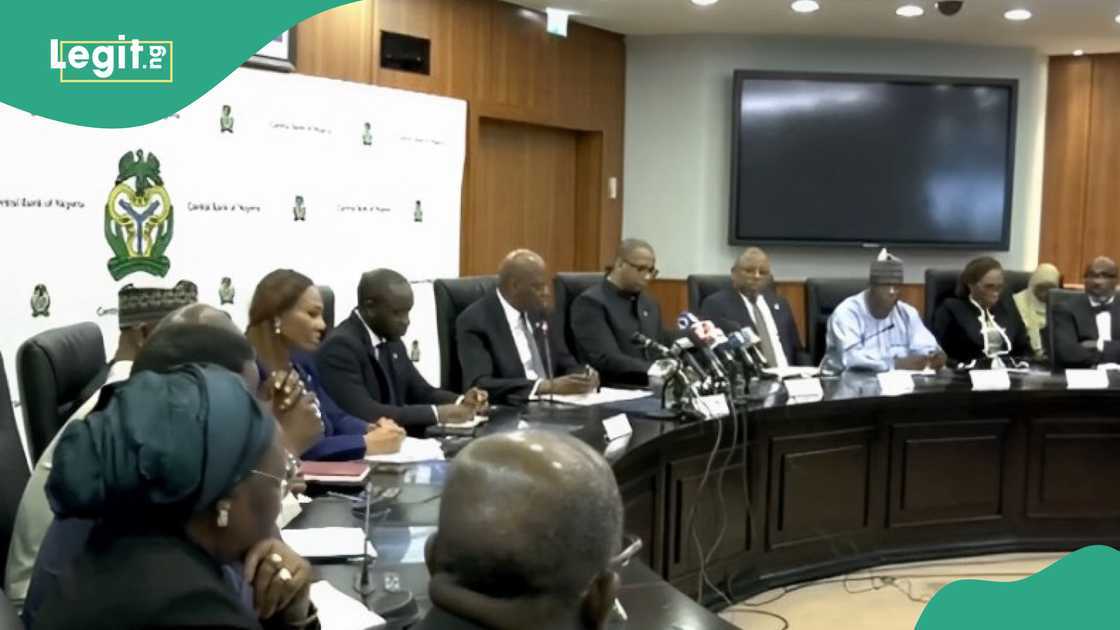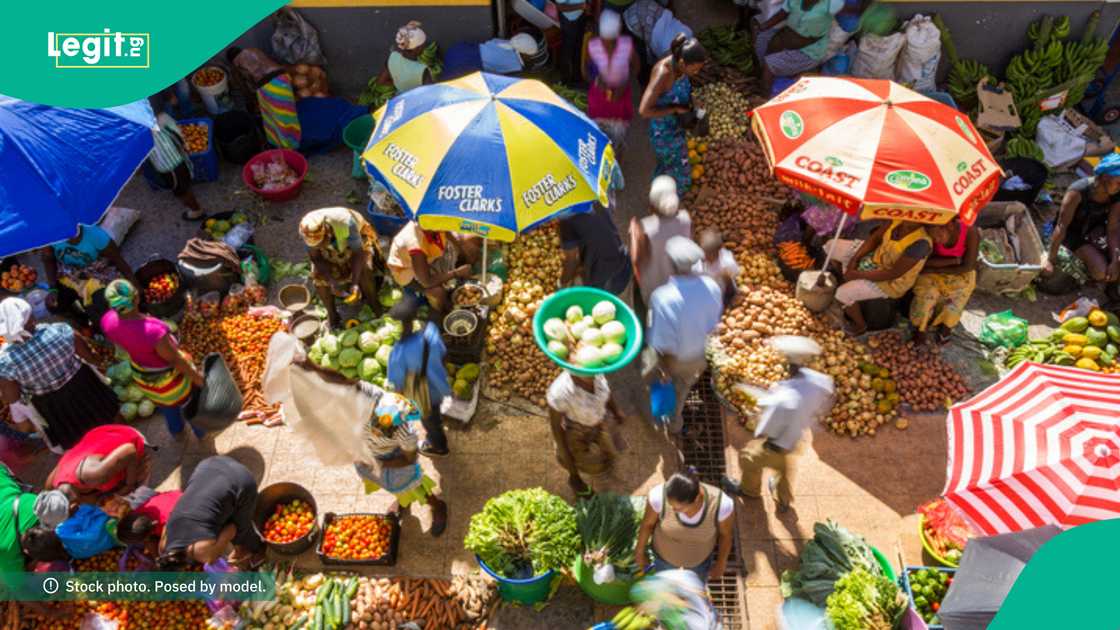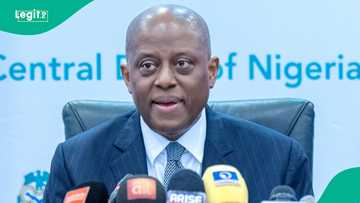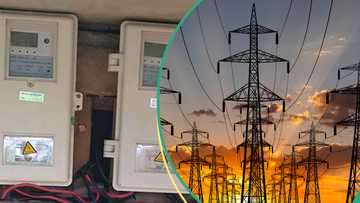CBN Makes Decision on Interest Rate for Loans, Savings After 2-Day Meeting
- The CBN has announced its decision after a two-day monetary policy committee meeting for July
- The 12-member apex bank has decided to retain the benchmark rate for interest on loans and also on savings
- This development means that businesses will have to wait a little longer to be able to get cheaper loans
The Central Bank of Nigeria's Monetary Policy Committee (MPC) has decided to retain the Monetary Policy Rate (MPR), the benchmark for interest rates, at 27.50%.
The new rate is the same rate the MPC has stood since September 2024.

Source: Facebook
This decision was announced by Yemi Cardoso, the Governor of the CBN, who also serves as the Chairman of the Monetary Policy Committee (MPC), on Tuesday, July 22.
According to Cardoso, all 12 MPC members agreed with the decision.
Other decisions reached at the MPC meeting
The CBN governor noted that the members voted to hold the MPR, maintain the asymmetric corridor at +500/-100 basis points, retain the Cash Reserve Ratio at 50% for deposit money banks and 16% for merchant banks, and keep the liquidity ratio at 30%.
Explaining, the CBN said:
"The decision was premised on the need to sustain the momentum of disinflation and sufficiently contain price pressures.
“The moderation in energy prices, particularly cooking gas, wood, charcoal, and diesel, played a significant role in easing headline inflation.
“The Committee remains committed to the Bank’s price stability mandate and would take appropriate measures to foster stability and confidence in the economy."
The National Bureau of Statistics has revealed that headline inflation eased to 22.22% in June from 22.97% in May, driven by declines in energy prices and improved foreign exchange stability.
However, month-on-month inflation rose slightly to 1.68%, from 1.53%, with food and core inflation also accelerating due to higher costs in services, housing, and communication.
However, core inflation rose to 22.76% in June, up from 22.28% in May, reflecting continued cost pressures in non-agricultural sectors.

Source: Getty Images
Other economic issues addressed
Speaking to the media, Cardoso highlighted significant risks ahead, including geopolitical tensions and ongoing global trade disruptions that could further inflate import costs.
The governor warned.
“The continued global uncertainties associated with tariff wars and geopolitical tensions could further exacerbate supply chain disruptions."
In the financial sector, he expressed confidence in the banking system’s stability, citing strong financial soundness indicators and momentum in the CBN’s recapitalisation program.
Eight banks, he announced, have fully met and surpassed the new capital requirements, with others progressing toward the compliance deadline, BusinessDay reports.
Cardoso also noted that the external reserves had risen to over $40.11 billion as of July 18, providing about 9.5 months of import cover, helped by improved oil production, rising non-oil exports, and declining import volumes.
CBN's MPC member projects new naira to dollar exchange rate
Earlier, Legit.ng reported that Murtala Sagagi, a member of the Central Bank of Nigeria’s (CBN) Monetary Policy Committee (MPC), has projected that the naira would appreciate to N1,450 per US dollar by the end of 2025.
According to Sagagi, Nigerian currency, the naira, is expected to sustain its positive trajectory through 2025.
He said the positive sentiments are due to efforts from monetary and fiscal authorities to stabilise the currency.
Source: Legit.ng




